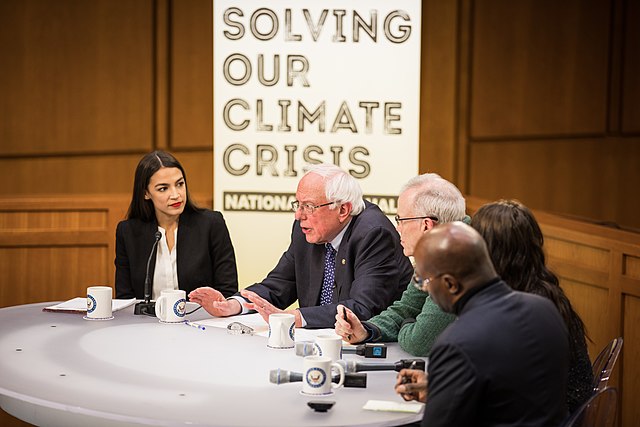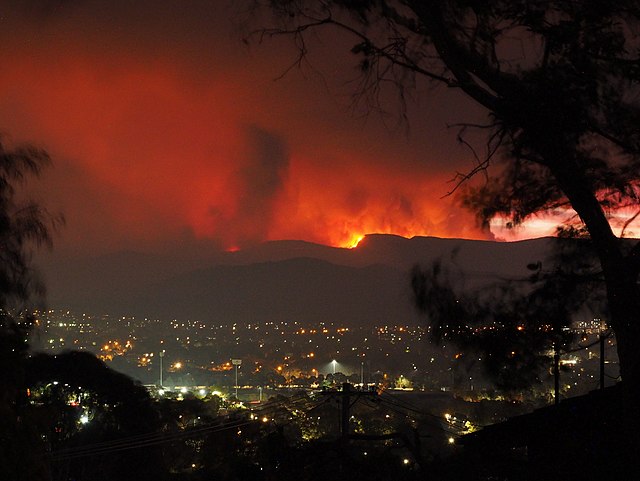"Climate crisis" is a term that is used to describe global warming and climate change, and their effects. This term and the term "climate emergency" have been used to describe the threat of global warming to humanity and Earth, and to urge aggressive climate change mitigation and "transformational" adaptation. In the scientific journal BioScience, a January 2020 article that was endorsed by over 11,000 scientists states: "the climate crisis has arrived" and that an "immense increase of scale in endeavors to conserve our biosphere is needed to avoid untold suffering due to the climate crisis".
Maldives President Mohamed Nasheed at the launch of the Climate Vulnerability Monitor in 2009, where the term "climate crisis" was used.
U.S. Representative-elect Alexandria Ocasio-Cortez and U.S. Senator Bernie Sanders at the December 2018, "Solving Our Climate Crisis, a National Town Hall"
An example of the terms climate crisis and climate emergency being used together during a protest march
In common usage, climate change describes global warming—the ongoing increase in global average temperature—and its effects on Earth's climate system. Climate change in a broader sense also includes previous long-term changes to Earth's climate. The current rise in global average temperature is primarily caused by humans burning fossil fuels. Fossil fuel use, deforestation, and some agricultural and industrial practices add to greenhouse gases, notably carbon dioxide and methane. Greenhouse gases absorb some of the heat that the Earth radiates after it warms from sunlight. Larger amounts of these gases trap more heat in Earth's lower atmosphere, causing global warming.
Sea ice reflects 50% to 70% of incoming sunlight, while the ocean, being darker, reflects only 6%. As an area of sea ice melts and exposes more ocean, more heat is absorbed by the ocean, raising temperatures that melt still more ice. This is a positive feedback process.
Different levels of global warming may cause different parts of Earth's climate system to reach tipping points that cause transitions to different states.
Ecological collapse. Coral bleaching from thermal stress has damaged the Great Barrier Reef and threatens coral reefs worldwide.
Extreme weather. Drought and high temperatures worsened the 2020 bushfires in Australia.







